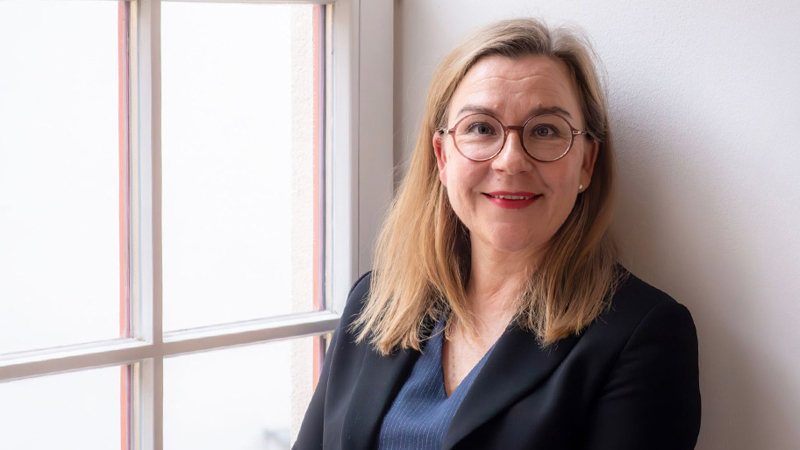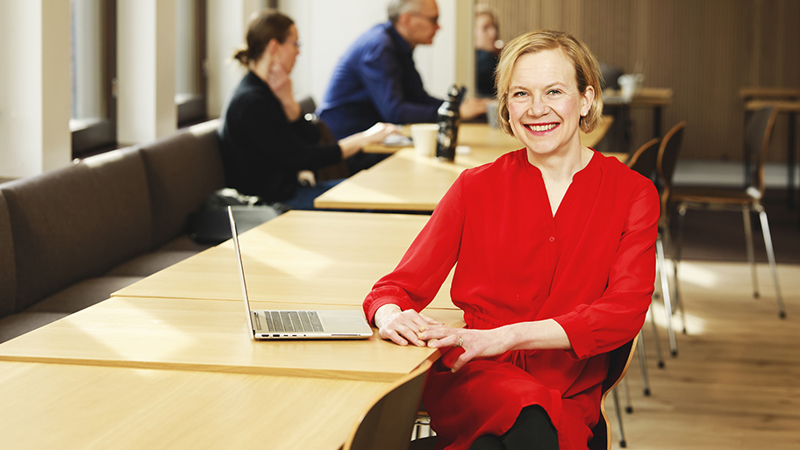Successful management of remote work requires trust
Working remotely has become familiar to even more people during the past year, and it is expected to remain a permanent part of work even after the pandemic. Managing remote work in exceptional circumstances poses challenges: how to take care of your employees’ well-being and work ability remotely, and what kinds of structures does efficient remote or hybrid work require?

In exceptional circumstances, supervisors need to communicate effectively, analyze the exceptional circumstances, make decisions, take risks, and increase the agility and resilience of the organization. Outi Ikonen, Chief Organizational Psychologist at Terveystalo, says that in addition to these operational activities, one key area that needs to be taken into account in managing the prolonged exceptional circumstances and remote work is maintaining and building up trust in the work community.
“We know that there is a clear link between trust and the results achieved by an organization. In studies at the individual level, trust has been linked to, for example, employee satisfaction as well as better performance and effort at work. However, in times of change, trust tends to erode, which means that immediate supervisors should now create practices that build trust to make the organization humanely efficient.”
How can supervisors build trust?
When managing remote work, the supervisor must succeed in creating well-functioning structures for the work. For example, it is useful to hold team meetings on themes related to the development of work, where common goals are clarified and monitoring activities are agreed on.
“Supervisors must make sure that everyone in the team knows what they are supposed to do. The problems of working life are often complex and many of those doing expert work are expected to solve vaguely defined problems. The goal of leadership and supervisory work is to continuously create clarity and provide direction, which increases the psychological safety of team members and, through that, builds up trust in the work community,” Ikonen says.
The psychological safety of the work community is also strongly associated with viewing mistakes and failures as opportunities for shared learning. According to Ikonen, the supervisor’s example of how to talk about failures is key.
“Basically, none of us wants to fail in our work. However, when people are creating, testing and experimenting with something new, mistakes are inevitably made, and these must be seen as an opportunity to learn. If the work community feels that you will be blamed for making a mistake, it will freeze the development of the organization as well as innovation and mutual trust: everyone will be focused on covering their back. In contrast, when mistakes are talked about together and different perspectives and future solutions are presented, mutual trust is strengthened.”
People may feel tired and vulnerable especially in prolonged exceptional circumstances. It is also necessary to create efficient structures for interaction and communication. Team meetings are suitable for some situations, but supervisors should also organize regular one-on-one meetings, as supervisors can build mutual trust by asking how the employee is doing and being proactive in contacting employees and finding solutions for issues related to coping at work. There is also a need for a lot of feedback, especially positive feedback, in remote work. When there are fewer face-to-face meetings, there will be less spontaneous feedback about good performance.
“Active, reciprocal communication is essential in the management of remote work and exceptional circumstances. It is important for supervisors to remember to thank employees and show appreciation. In communication, the importance of listening is also highlighted: starting a conversation without hurrying, asking open questions and validating each other’s ideas builds up mutual trust,” Ikonen says.
If the supervisor feels that trust has been damaged in the work community, the matter should be discussed with the parties involved. Trust in the work community is strengthened when difficult issues can also be discussed.
“The supervisor has a greater responsibility for building and restoring trust than the employee. At the same time, it is important to remember that trust must be mutual. The supervisor is not able to build trust alone,” says Ikonen.
This means that supervisory work in exceptional circumstances involves challenges and problems to be solved. This work becomes easier when you have the necessary information and tools.
If you are interested in our services for organizations, such as coaching packages that support supervisory work in exceptional circumstances, please get in touch!
Contact us to learn more
Latest articles

A mind-friendly and brain-healthy holiday - how to recover and recharge your batteries?
Many people start their summer holidays after Midsummer. For a holiday to soothe your mind, take a look at Terveystalo's occupational health psychologist Tiina Tuominen's tips for a restorative holiday.

What future leadership looks like?
According to Hertta Vuorenmaa, an expert on the future of work and management, work is a huge social institution, and changing it is always difficult because we have established ideas about how to do work. Understanding historical turning points can help in managing current changes, as changes in working life are not only technology-driven, but require holistic thinking and managing people's emotions.

The approaching holiday feels stressful – What can help?
The holiday is approaching, but work issues are piling up and there’s conflict in the family about how to spend the time off. Excessive expectations and the pressure to “make the most of it” can cause unnecessary anxiety.

"Let life show at work"
Humanity in the workplace feeds well-being and productivity. Workplaces need a new culture that genuinely values diversity and takes into account different life situations," says Eveliina Holmgren, an organisational psychologist at Terveystalo.

Tips from an organisational psychologist: how to create psychological safety in the workplace
Eveliina Holmgren, an organisational psychologist at Terveystalo, explains how to get started in strengthening psychological safety in the workplace.

Here are the digital trends in healthcare 2025: AI frees up time and supports quality of care
Ilari Richardt, Director of Digital Services at Terveystalo, highlights five major digital trends that will transform healthcare this year. At the heart of these trends is the potential of artificial intelligence to solve healthcare problems.